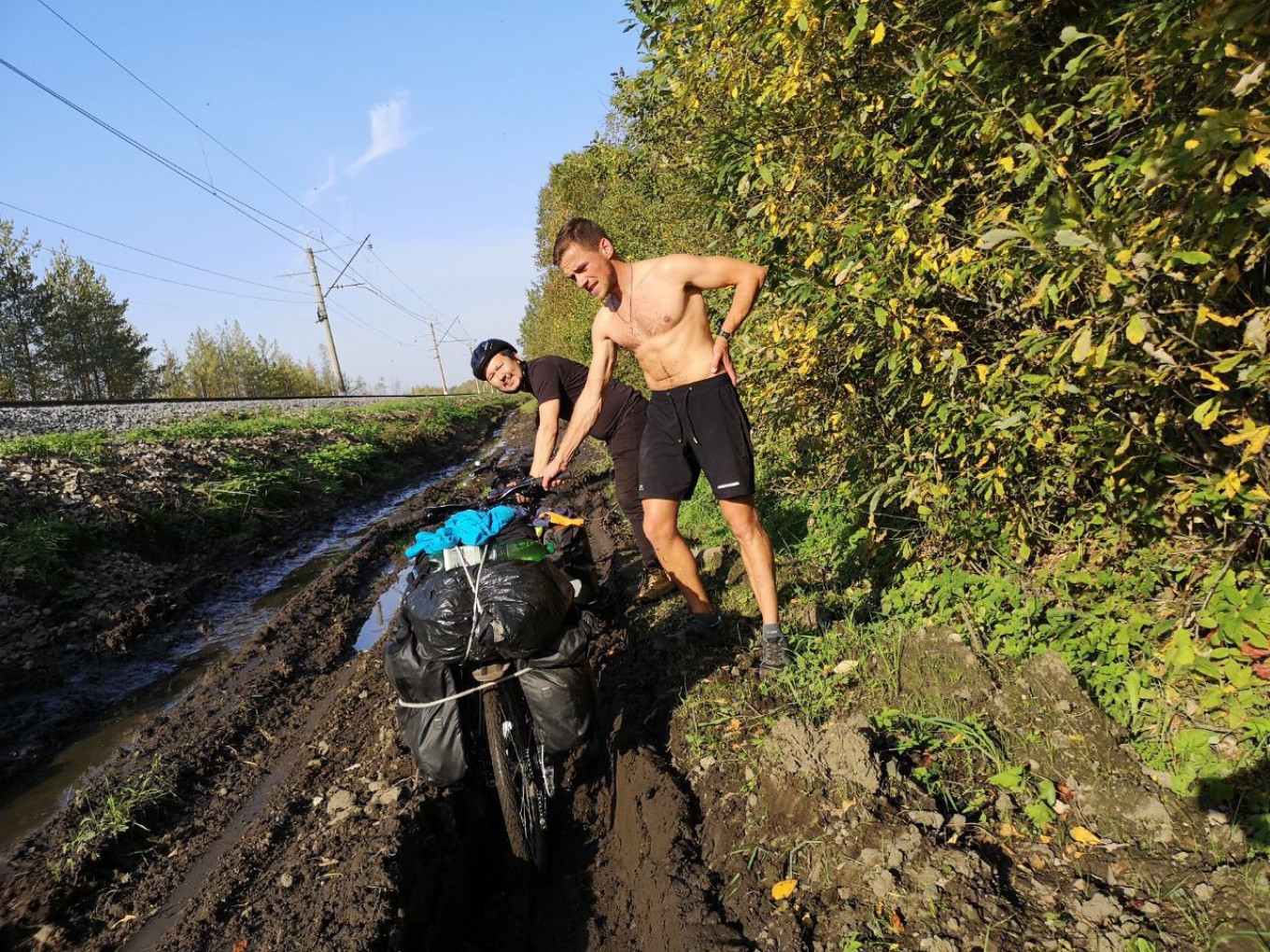It takes just four hours to get to St. Petersburg from Moscow by high-speed train, a couple more hours by car, but what about 16 days by bike? Twelve volunteers, mainly Muscovites, finished their 1,100-kilometer expedition at the Hermitage museum last Sunday. This trip wasn’t the first one in Russia’s cycling movement, but has a potential to become a turning point for the country’s bike tourism.
Vladimir Kumov told The Moscow Times that it all began when “I was invited to have lunch with Varvara Melnikova, the director of Strelka Institute, who asked me if I was ready to cycle to St. Petersburg.”
The 35-year-old Kumov is a traveler, bike activist and Let’s Bike It! founder. In 2010 he established this non-commercial organization to promote urban cycling and advocate for a cycling infrastructure in Moscow and Russia. For this trip he said, “The aim was to pull together an absolutely diverse team —from a beginner to a professional cyclist. Take completely different bikes and see how they all do,” Vladimir said. The project was initiated by the Moscow based Strelka KB consulting company and sponsored by Millhouse company and Rostourism (The Federal Agency for Tourism). Kumov found all his fellow cycling travelers through social networks and friends.

At the group’s last meeting in St. Petersburg, the participants shared their impressions. For Yuri and Natalia it was a honeymoon trip, although they weren’t sure if they were going to make it. “I’m probably an example of a small, fragile girl, who never wears sneakers in her ordinary life, but who can actually cycle this route,” 24-year-old Natalia said. “For me it was very profound to commune with nature, because we spent so many hours outside. With every little leaf we felt autumn coming and watched trees turning yellow. It was simply amazing!”
Anna Kuzmina, 29, works at Yandex and is a Let’s Bike It! Activist. She was also really moved by nature. “I went crazy in a good way from the sky on Seliger Lake in the Tver region. We jumped into the lake after the banya. I felt I was swimming in a space with stars above and around me, reflecting in the dark water,” Anna said. Although she admits that there were tensions in the team and people had to be very patient with each other, she said, “In the end, you got used to being very open and talking candidly about your own needs.”

Athletic Alexander Ganzer, 32, was a bit frustrated with the slow participants. He wished the average speed would have been 15 kilometers per hour instead of 10. His most vivid memory was the 182 kilometers bike day between Veliky Novgorod and Siversky settlement. That was one of his greatest experiences, he said. “I also liked that people opened up and didn’t wear masks,” he said. “It’s very cool to get to know each other gradually. And we had two lovely unplanned meetings: one with the banya master Albert at the Stary Sig guest house, and the second with Zinaida Ivanovna in the Leningrad region,” he said. The cyclists just asked her if they could pick some of her apples, but the hospitable babushka invited them in for tea.
But it wasn’t all fun. The participants had a list of complaints: Russian roads, heavy traffic, mud, sand, bad service and hostility to cyclists. Strelka KB urbanist Andrei Yelbayev regretted not being able to do proper sightseeing in cities. He said the route offered churches, country mansions, natural sights, historical towns, World War II memorial monuments (both Soviet and German), difficult terrains, and some weird and unexpected sites like a brightly ornamented fence or a cheese farm in the Tver region run by an Italian expat. “I think that bell towers have a huge potential as observation points,” Yelbayev said. He also noted that many areas lacked tourist information, comfortable rest stops, or just seem to be very dull. “It would be great if in the future the route could be landscaped and filled with land art by famous or local artists,” he said.

Representatives of Strelka KB made it clear at the meeting that their project was just beginning. The main part of their research, fundraising and planning for the route will be held over the next five years. Ilya Gurevich, the head of Velopiter cycling movement, was rather skeptical about the future. Gurevich, a tour guide with 20 years’ experience, has cycled from St. Petersburg to Moscow five times. “But I have to admit — I didn’t want to. I was pushed by groups of British and French cyclists who asked for the tour.” All the same, the cycling veteran offered his help, noting that national bike routes are self-sustaining and support the local economy.
For more information on the project and route map, see the website.






